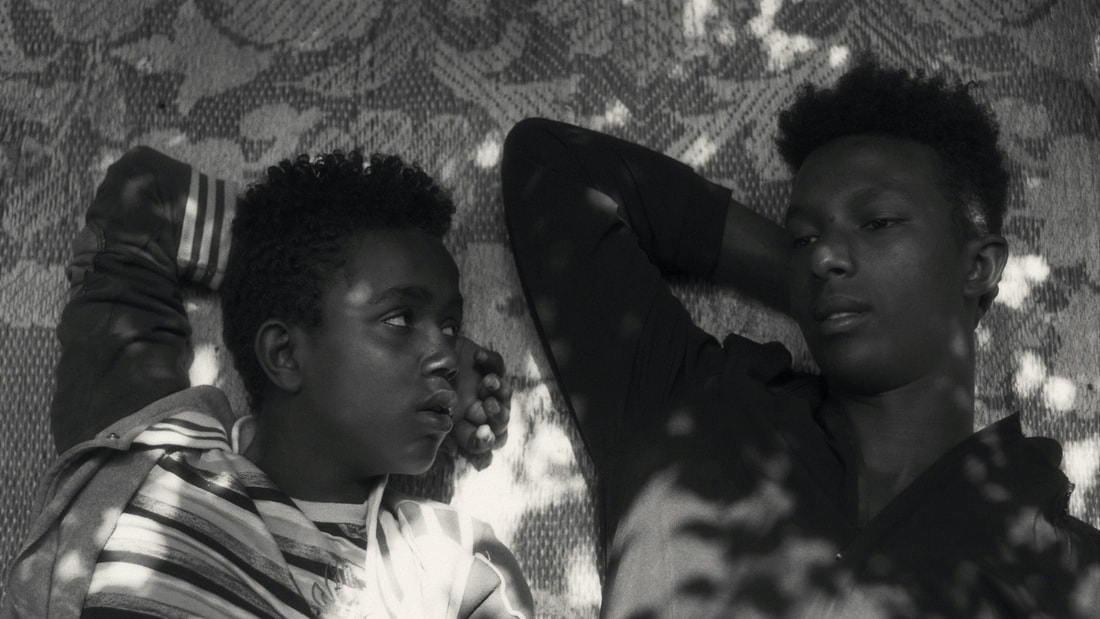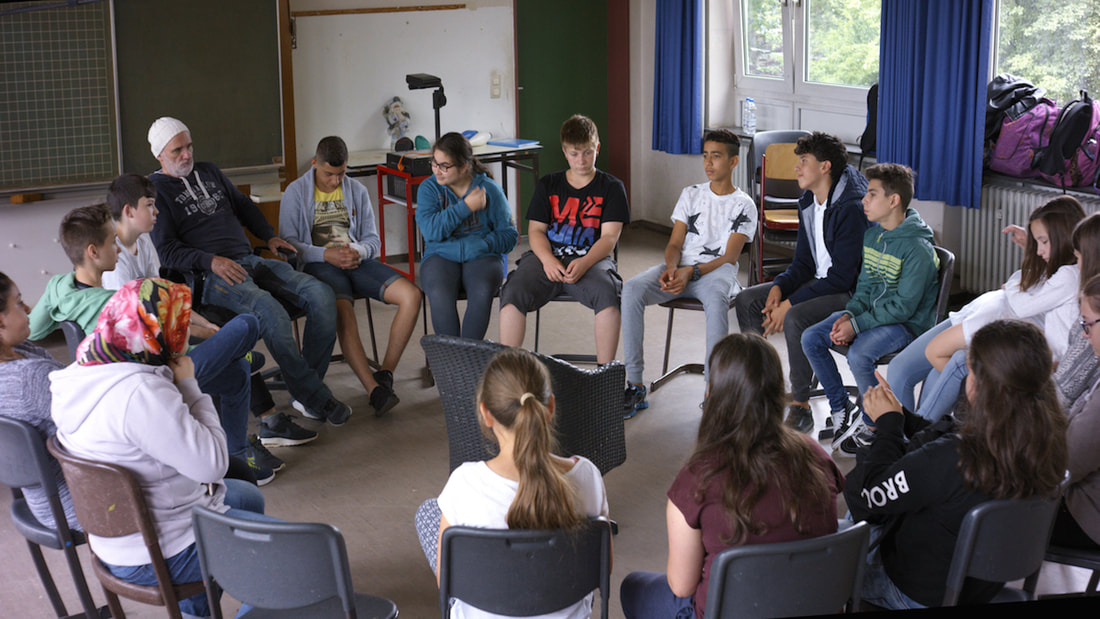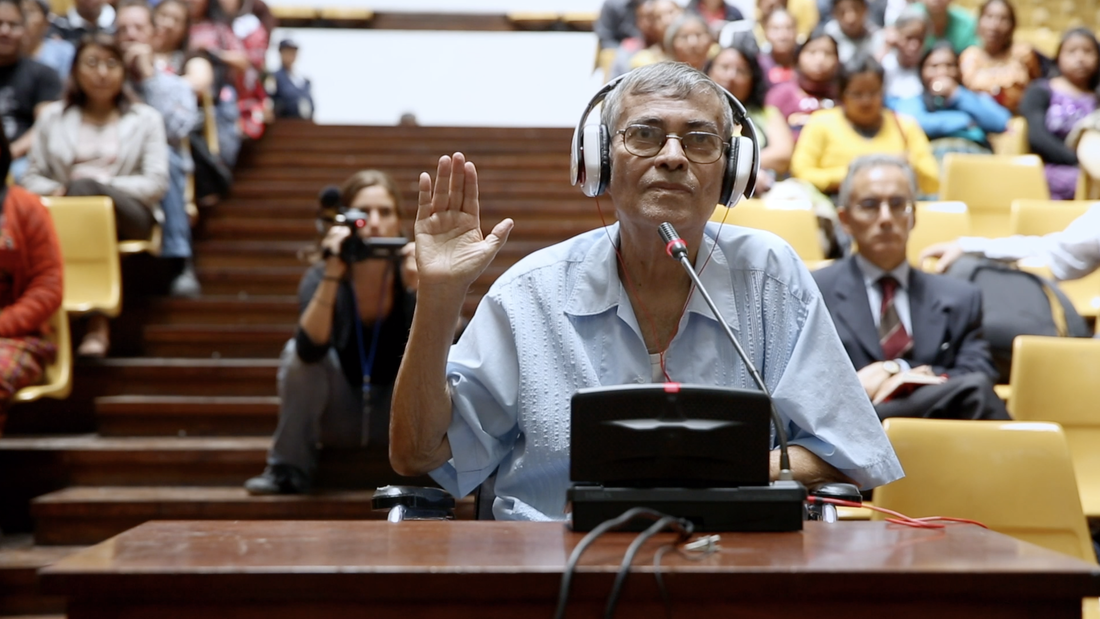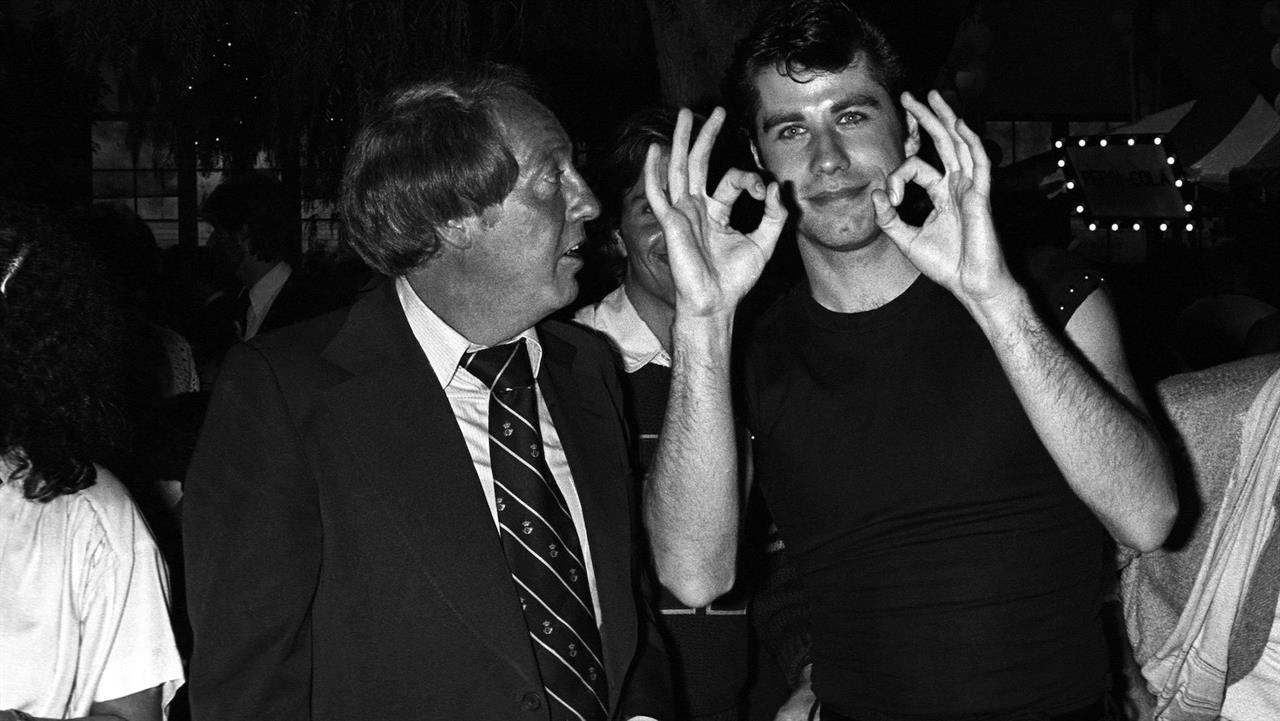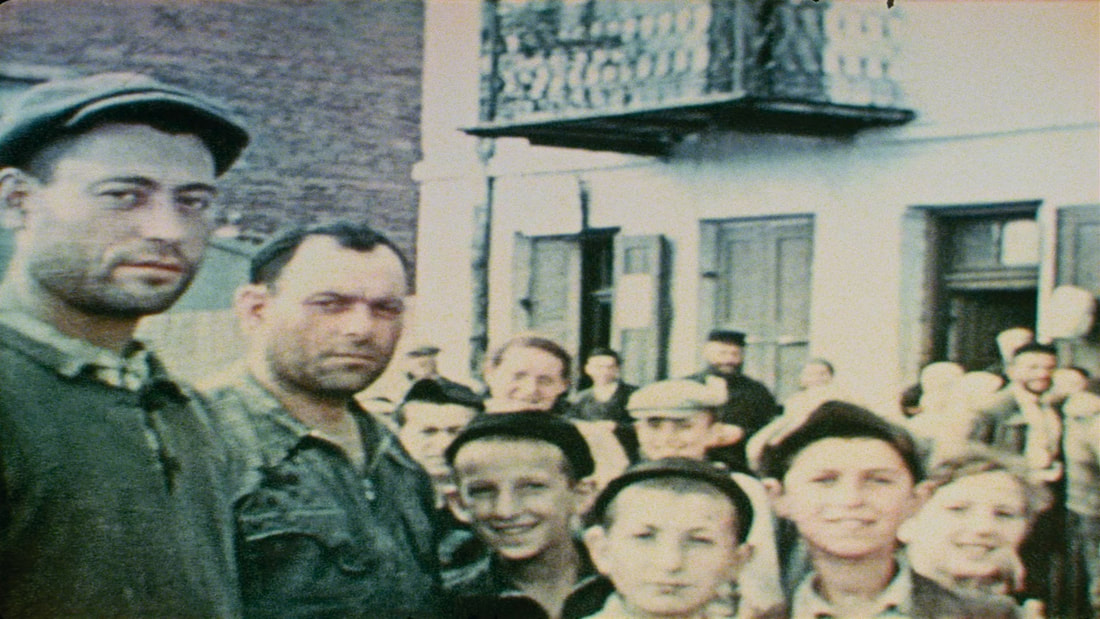|
Review by Sean Boelman
In the thick of autumn, film festivals start to become a showcase of some of the biggest and best cinema that the year has to offer. However, the spotlight is all too often taken by the A-list narrative films competing for above-the-line prizes, leaving some great nonfiction films in the dust. DOC NYC sets out to remedy that, with a program that is both a showcase for some of the films which will be racking up prizes in the months ahead and a platform for exciting new films to be discovered.
For the second year in a row, disappointment media will be remotely covering the DOC NYC film festival which runs November 10-28. Make sure to check out this article in the weeks ahead, as we will be sharing our thoughts on some of the films we get to screen as part of the festival. Faya Dayi
There is an undeniable beauty to Jessica Beshir’s Faya Dayi, but it takes observation to the extreme, basically forsaking traditional narrative altogether. That isn’t to say that the film is entirely meaningless — there are a lot of powerful moments spread throughout — but Beshir’s portrait of this community is perhaps a bit too sprawling for its own good. That said, the gorgeous black-and-white cinematography is a sight to behold, and is worth watching the film for on its own.
Krimes
The story of artist Jesse Krimes is undeniably extraordinary, as he persevered through extraordinary adversity to create some powerful work, but filmmaker Alysa Nahmias doesn’t know what to do with it. This is a pretty standard documentary, and while it hits all of the beats to get a reaction from the viewer, the storytelling is so rushed that it doesn’t have much of a lasting impact. This is definitely a case of a film where the subject is what carries the film.
Mr. Bachmann and His Class
The observational documentary Mr. Bachmann and His Class took the Silver Bear award at the 2021 Berlin International Film Festival, and the reason why is likely its powerful impact. Following a German teacher who approaches education with an uncommon level of empathy, the film is both an examination of the educational system and a portrait of today’s youth and the way they are being shaped by society. And even though watching a bunch of kids go to school may not sound like the most exciting way to spend three-and-a-half hours, it’s unexpectedly absorbing.
Dean Martin: King of Cool
Dean Martin: King of Cool is exactly what one would expect from a documentary that was made to air on TCM: a not too deep, infotainment dive into Hollywood history. And while there are some fascinating tidbits and anecdotes, there’s just not enough going on to make it memorable. Fans of Martin will undeniably find this to be a pleasant nostalgia trip down memory lane, but then again, anyone who has an intimate familiarity with his career won’t find anything new here.
The Silence of the Mole
Anaïs Taracena’s The Silence of the Mole tells a fascinating story, but in a way that is so extraordinarily dry that it loses all of its impact. Although the subject of the film is an exceptional man who showed great bravery in infiltrating and fighting back against the corruption in his government, the film doesn’t really do anything to communicate the power of what he has done. Instead, it misguidedly tries to be poetic, and in the process ends up being quite empty.
Adrienne
Adrienne Shelly’s story is quite tragic but also very hopeful at the same time, and her widower Andy Ostroy’s documentary Adrienne does an amazing job of paying tribute to her while recounting her life in a meaningful way. Part true crime documentary and part biography about an artist with a passion for creating her work, it’s a riveting watch in every sense. Featuring extensive interviews with Shelly’s friends and family, the emotional section of the film dominates even though it’s somewhat uneven.
Torn
There have been quite a few documentaries in recent years that have explored the dangerous sport of climbing, but Max Lowe’s Torn stands out because of its highly emotional nature. Although there are definitely some sporting elements here, the film is more about the grieving process that Lowe faced after his father unfortunately passed while on a climb. It’s a devastating story, and the film is quite effective, but it would have been much more efficient had it been a short rather than a feature.
Mr. Saturday Night
The first half of Mr. Saturday Night, a documentary telling the story of disco pioneer Robert Stigwood, plays out like any other music doc about the history of disco that you have ever seen, but with one damning difference: it has absolutely no energy. However, when it starts talking about the behind-the-scenes drama that surrounded the production of the unexpected smash hit Saturday Night Fever, it becomes a ton of fun to watch and offers some really interesting anecdotes which viewers may not have heard before. It just takes a bit for the film to get there.
DMX: Don't Try to Understand
We have seen plenty of documentaries about late rappers which turn their tragic stories into cautionary parables, but that is not the intention with DMX: Don’t Try to Understand. Although the film does explore the (very public) struggles that Earl “DMX” Simmons had with addiction, it does so in a way that feels extremely empathetic, rather than trying to teach the audience a message through his misfortune. Fans hoping for a documentary heavy on his music may not be fully satisfied, but this is a much more personal film, and is arguably better for it.
Three Minutes: A Lengthening
One would think that the premise of Three Minutes: A Lengthening wouldn’t make for that compelling of a feature documentary, but Bianca Stigter’s work is unexpectedly intriguing. Diving into a single, three-minute home movie of a Jewish community in a Polish village soon before WWII would have devastating effects on them, this film shows the amount of power and information there is in even the briefest of glimpses into the past. It can definitely feel like a film school lecture at times, but the presentation and information is strong enough to hold the viewer’s interest.
Jagged
After its premiere at TIFF, the Music Box documentary Jagged picked up some controversy when its subject turned against the film, claiming that the filmmaker violated her trust. It’s easy to understand why, as like many of the other films in this series, this is a no holds barred look into the life of Alanis Morissette. Although filmmaker Alison Klayman, a self-proclaimed fan, is quick to (deservedly) praise Morissette for the brilliant work she has done as a musician, she also doesn’t shy away from the disparity between the words in her lyrics and what she (and he band) did in their private lives. It’s a fascinating, insightful watch.
Nothing But the Sun
Every year, a few documentaries are submitted by their countries of origin as the representative for Best International Feature, but few earn the honor of a spot on the shortlist, much less a nomination. The Paraguayan film Nothing But the Sun is unlikely to buck that trend, but it’s quite good nevertheless, and it’s totally understandable why this was chosen as a submission. A moving exploration of identity and colonialism, Arami Ullon’s film dissects a very important issue that most people are privileged to not have to think about. The result is poetic and often quite captivating.
The 2021 DOC NYC Festival runs November 10-28.
0 Comments
Leave a Reply. |
The Snake HoleRetrospectives, opinion pieces, awards commentary, personal essays, and any other type of article that isn't a traditional review or interview. Archives
June 2024
Categories
All
|
|
|
disappointment media
Dedicated to unique and diverse perspectives on cinema! |


